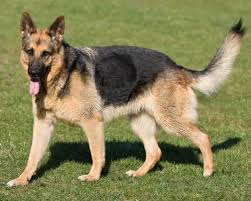How much mandarin can I give my dog? A segment or two of a mandarin daily should not harm them, and Vitamin C is water soluble, so any excess shouldn’t accumulate in the body. That said, remember to take out the seeds and peel this tasty citrus treat to avoid any digestive upset later.
Can dogs eat mandarins or oranges? Can Dogs Eat Tangerines, Clementines, and Mandarins? Dogs can eat tangerines and clementines. In fact, dogs can eat all kinds of oranges, including mandarins and Satsuma oranges.
Are oranges toxic to dogs? Yes, dogs can eat oranges. Oranges are fine for dogs to eat, according to veterinarians, but they may not be fans of any strong-smelling citrus. Oranges are an excellent source of vitamin C, potassium, and fiber, and in small quantities, the juicy flesh of an orange can be a tasty treat for your dog.
Is citrus toxic to dogs? “All citrus fruits contain essential oils and a chemical compound that are toxic to dogs. These are found in the plants, tree parts, the skin, and the pithy white parts,” Dempsey explains.
How much mandarin can I give my dog? – Additional Questions
What fruits can dogs not have?
What Fruits Are Not Good for Dogs?
- Avocado. This fruit contains persin, a toxin that makes dogs throw up and have diarrhea.
- Cherries. Cherry pits contain cyanide.
- Grapes. Grapes can cause sudden kidney failure in dogs.
- Tomatoes. The green parts of the tomato plant have solanine, which is toxic to dogs.
Why can’t dogs have potato skins?
Potato skins contain oxalates. Oxalates are fine in moderation. However, if your dog eats too many potato skins, they may develop kidney problems. In order to keep your pet safe, consider keeping the potato skins to yourself and only sharing small amounts of unseasoned, cooked potatoes.
What happens if a dog licks a lime?
Key Takeaways. Lime peels contain oils that can cause dogs to get diarrhea, vomiting, digestive upset, and poisoning. Symptoms of poisoning from limes include sensitivity to light, low blood pressure, and lethargy.
Are lemons poisonous to dogs?
In a word, no – they aren’t good for dogs. Lemons don’t have any nutritional value and the acidic nature of their juice can cause issues for your pup. Further, the essential oils and compounds called psoralens in the lemon can be toxic for your pet when consumed in large enough quantities.
What if my dog ate lemon?
If your dog eats a large amount of lemons, you may start to see things like sensitivity to light, drooling, tremors, and/or dizziness or inability to walk. If a significant enough amount is ingested and no immediate veterinary intervention is sought out the symptoms may even lead to death.
Is lemon juice toxic to dogs?
Citric acid is harmful to dogs, especially in large quantities. It can cause extreme stomach upset, and even vomiting and diarrhea. Lemons are high in citric acid. Though a single lick of lemon or lemon juice probably won’t turn your dog’s stomach, too much of it can make them feel very sick.
Can dogs have cucumbers?
Are Cucumbers Safe for Dogs? Cucumbers are perfectly safe for dogs to eat, and offer a low-calorie, crunchy snack that many dogs love. Cucumbers only contain about 8 calories per one-half cup of slices, compared to the 40 calories in a single medium biscuit, and are very low in sodium and fat.
Can dogs have tomatoes?
Dogs can eat tomatoes but only in small amounts. Ripe tomatoes are considered nontoxic to dogs and can be fed in moderation as an occasional snack.
What can I give my dog to drink other than water?
What can dogs drink other than water?
- Vegetable juice or extracts. Vegetables like carrot, beetroot, kale, celery, and spinach are healthy canine snacks packed with vitamins, minerals, and tons of other nutrients.
- Coconut water.
- Nut milk.
- Beef or chicken broth.
- Fruit juices.
- Kefir.
Can dogs eat ice cream?
Dogs Don’t Digest Milk Well
Eating ice cream may cause your dog a stomach ache or worse, depending on how sensitive they are. Ice cream can cause your dog gas, bloating, constipation, diarrhea or vomiting.
Can dogs have popcorn?
Yes and no. Plain, air-popped popcorn is safe for dogs to eat in small quantities. Buttered popcorn or popcorn with other toppings is not safe for your dog on a regular basis, although eating a few dropped pieces here and there probably won’t hurt him.
Is cheese bad for dogs?
While cheese can be safe to feed to your dog, there are some things to remember. Cheese is high in fat, and feeding too much to your dog regularly can cause weight gain and lead to obesity. Even more problematic, it could lead to pancreatitis, a serious and potentially fatal illness in dogs.
Can dogs eat pizza?
The bottom line is that you should never give pizza to your dog, whether as a meal or a treat. They might experience a slight stomach upset if they’re sensitive to dairy, due to the excess fat, but overall in many cases dogs are fine.
Can dogs eat pasta?
Dogs can eat plain white rice or pasta after it’s cooked. And, a serving of plain white rice with some boiled chicken can sometimes make your dog feel better when they are having stomach problems.
Can dogs eat bacon?
Bacon is an incredibly rich and fatty food with a high salt content, which can prove to be too much for a dog’s stomach to handle. Eating a large amount can cause pancreatitis, which can be fatal.
Can dogs have scrambled eggs?
Eggs should be cooked before given to a dog. Cook or boil eggs plain without oil, butter, salt, seasoning, spices, or other additives. It doesn’t matter how your dog likes their eggs — sunny side up, scrambled, or hard boiled — as long as they are cooked.
Can dogs eat french fries?
French fries are high in salt, fat, and carbs, which can lead to canine weight gain. Restaurant or fast food fries can be hazardous to dogs because of their exceptionally high salt content. Additionally, restaurant-prepared fries often contain seasonings harmful to dogs, like garlic or onion powder.




